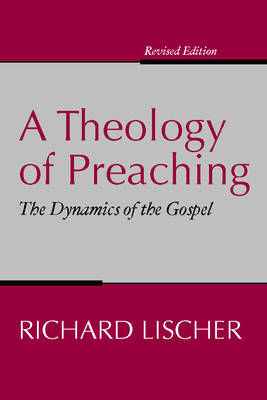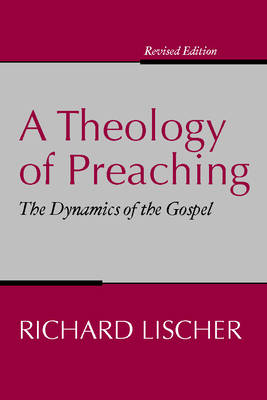
Door een staking bij bpost kan je online bestelling op dit moment iets langer onderweg zijn dan voorzien. Dringend iets nodig? Onze winkels ontvangen jou met open armen!
- Afhalen na 1 uur in een winkel met voorraad
- Gratis thuislevering in België vanaf € 30
- Ruim aanbod met 7 miljoen producten
Door een staking bij bpost kan je online bestelling op dit moment iets langer onderweg zijn dan voorzien. Dringend iets nodig? Onze winkels ontvangen jou met open armen!
- Afhalen na 1 uur in een winkel met voorraad
- Gratis thuislevering in België vanaf € 30
- Ruim aanbod met 7 miljoen producten
Zoeken
Omschrijving
Richard Lischer's book is a stirring affirmation of preaching's importance as a major enterprise in its own right. It is, he writes, ""a theological preface whose aim is to show how theology informs preaching and how preaching, as a kerygmatic, oral, practical activity, informs theology and brings it to its final form of expression."" Dr. Lischer points to the historically negative results of preaching's exclusion from theology, and then shows the benefits derived from the proper interaction of the two disciplines. As he elaborates on this theme, he explores the centrality of the Resurrection in both theology and preaching, the relation of the law and the gospel, and how preaching calls upon theology to recover its oral-aural foundation. For Lischer, the act of preaching is an exercise of the preacher's imagination. The real work of imagination is not inserting clever stories or esthetically pleasing images into the argument of the sermon. It is knowing how to read texts in such a way that they will be allowed to function according to their original power and intent.
Specificaties
Betrokkenen
- Auteur(s):
- Uitgeverij:
Inhoud
- Aantal bladzijden:
- 114
- Taal:
- Engels
Eigenschappen
- Productcode (EAN):
- 9781579106591
- Verschijningsdatum:
- 8/06/2001
- Uitvoering:
- Paperback
- Formaat:
- Trade paperback (VS)
- Afmetingen:
- 157 mm x 229 mm
- Gewicht:
- 163 g

Alleen bij Standaard Boekhandel
+ 39 punten op je klantenkaart van Standaard Boekhandel
Beoordelingen
We publiceren alleen reviews die voldoen aan de voorwaarden voor reviews. Bekijk onze voorwaarden voor reviews.











